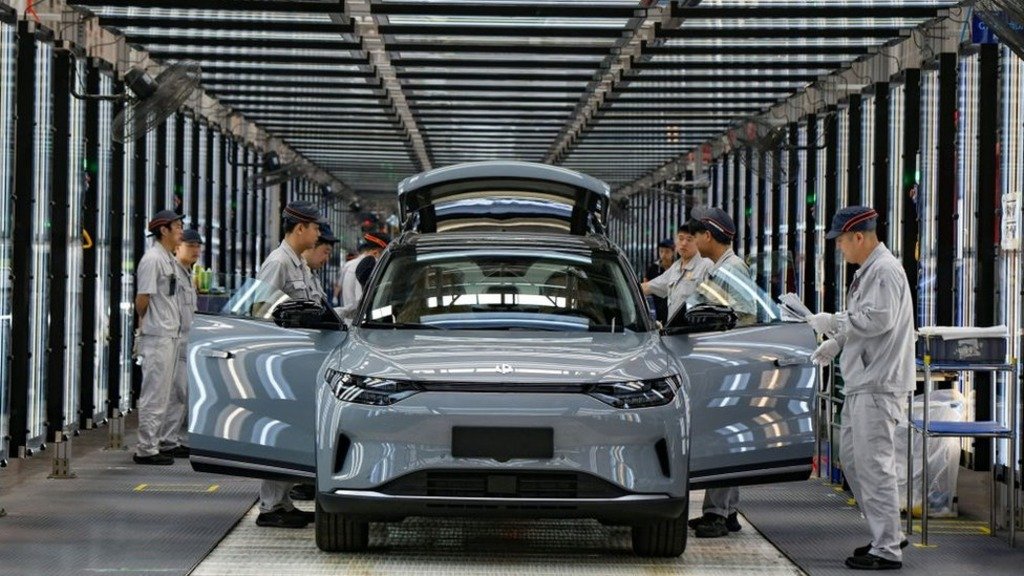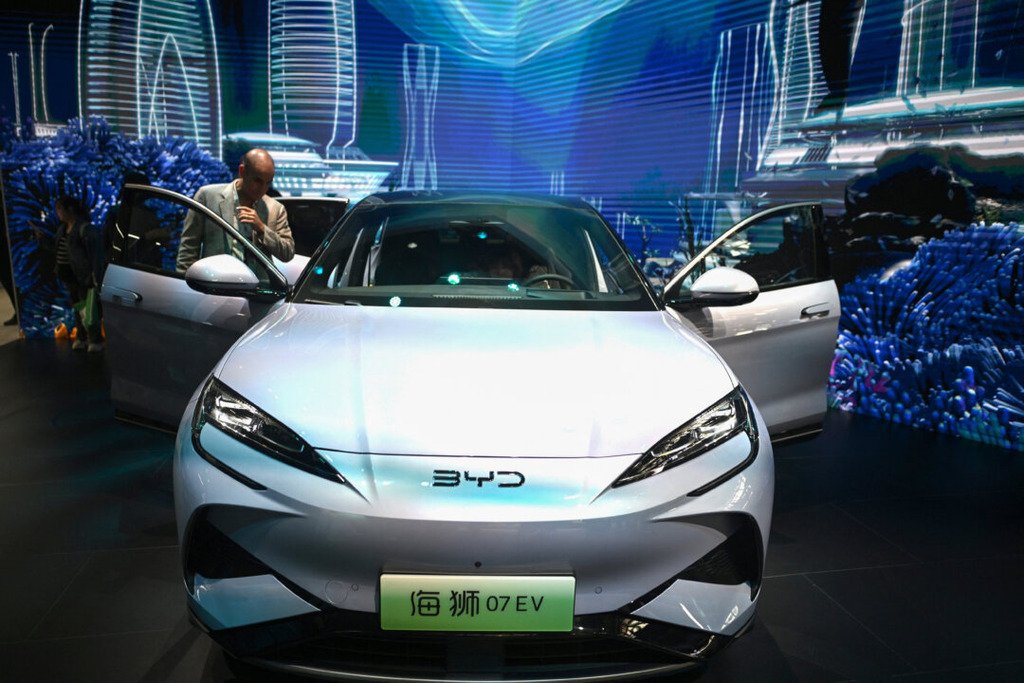European Union Imposes Tariffs on Chinese Electric Vehicles
The European Union (EU) ‘s imposition of tariffs on Chinese electric cars (EVs) is a significant move, signalling a turning point in the global auto industry. This move results from worries about Chinese automakers’ competitive advantage, which is primarily attributable to significant state subsidies. In addition to addressing the rising dominance of Chinese EVs in the European market, the additional tariffs aim to level the playing field for European producers

Background of the Decision
The European Union has expressed worry over the swift ascent of Chinese electric vehicle producers. Thanks to government subsidies and significant investments in the electric vehicle industry, Chinese automakers can now sell cars at competitive prices. Chinese businesses now have an essential competitive edge in the global market because these subsidies have allowed them to expand production, cut expenses, and improve technical breakthroughs.European producers have struggled and needed help matching their Chinese competitors’ aggressive price policies. Due to this mismatch, fears about market distortion and possible harm to the European car sector have arisen. By raising the price of Chinese EVs in Europe and hence decreasing their competitive advantage, the new tariffs seek to alleviate these worries.
The Rationale Behind the Tariffs
The idea of fair competition serves as the foundation for the EU’s decision. Authorities in Europe contend that the subsidies given by the Chinese government amount to unfair trade practices that cause market distortions. The EU wants to shield its industries from the damaging impacts of these subsidies, which is why it is implementing tariffs. Furthermore, the tariffs are considered a calculated measure to promote innovation and investment in the European automobile industry. The EU intends to create a more competitive atmosphere by levelling the playing field, accelerating technical development and expanding the European EV market.
Potential Impact on the Market
The automobile market is anticipated to be significantly impacted by tariffs in several ways, such as price adjustments. The tariffs will directly increase the price of Chinese EVs in the European market. This price increase may decrease demand for these cars since buyers may choose cheaper substitutes. Market Dynamics: The tariffs might change the competitiveness of the European EV market. With less competition from Chinese brands, European producers may gain market share. Market Dynamics: The tariffs might change the competitiveness of the European EV market. With less competition from Chinese brands, European producers may be able to gain market share. The selection of reasonably priced EVs available to European consumers may be more constrained. The tariffs may unintentionally lessen the variety of automobiles accessible, even if their goal is to safeguard domestic businesses. International Trade Relations: The decision may strain the EU’s and China’s trade relations. In response, China may take retaliatory action, which might impact other industries and have broader economic effects.

Reactions from Stakeholders
There has been a range of reactions to the EU’s decision. Most European manufacturers have embraced the action, seeing it as a vital step to guarantee fair competition. They contend that the tariffs will give them an equal opportunity to compete in the quickly expanding EV industry. Conversely, Chinese automakers and government representatives have denounced the tariffs as protectionist measures. They contend that to uphold international trade ideals, the EU seeks to restrict competition and defend its industries. A few Chinese businesses have hinted that they would try to use the judicial system to contest the levies. Environmental organisations have also contributed to the discussion. While some applaud the action as a means of preserving the viability of the European automobile
Future Outlook
The global automobile sector has seen a noteworthy development with the implementation of tariffs on Chinese electric vehicles. Policymakers and industry experts will keenly observe the effects of these levies as the market for electric vehicles expands. The tariffs allow European manufacturers to improve their standing in the EV market. To be competitive, businesses must, nonetheless, also continue to innovate and cut expenses. The EU’s judgement emphasises the importance of balancing the need to promote a healthy and sustainable automotive sector and the significance of fair competition. The consequences of the tariffs will become more evident in the upcoming months as market forces adapt to the new regulatory environment.






